LEAHN’s Country Focal Point in Kenya, Inspector Wilson Lomali, met with UNAIDS Deputy Executive Director Dr Luiz Loures on a recent visit to the nation’s capital, Nairobi. Dr Loures visited local NGO Health Options for Young Men in HIV, AIDS and STIs (HOYMAS). HOYMAS serves male sex workers and young men and MSM with practical knowledge on safe sex, preventive materials distribution, general information and also economic empowerment.
HOYMAS recently drew widespread drawn attention by creating income generation activities for male sex workers. IGA projects. The most recent is the launch of the HOYMAS Taxi cab. Ms Marieke Ridder, Manager of Sex Work Projects, The Netherlands, was one official who attended the launch. HOYMAS have also opened a clinic to service the male sex worker community.
The UNAIDS visit was intended to assess the capability of HOYMAS, to help with increasing the number of supporting partners and to enhance funding capability.
Dr Loures was accompanied by the UNAIDS Kenya Country Director and Dr Pierie. The MSM community turned out in strength to welcome the visiting officials. Police Inspector Wilson Lomali highlighted the role the local police play in supporting HOYMAS projects and efforts police are making to partner with local NGOs.
As LEAHN Country Focal Point for Kenya, Inspector Lomali talked about his activities in engaging with HOYMAS and the importance of fostering a supportive police role in the fight against the spread of the HIV and AIDS. HOYMAS support and funding have sponsored Inspector Lomali in training approximately 200 law enforcement agents on human rights, gender based violence and promotion of HIV services in Kenya.



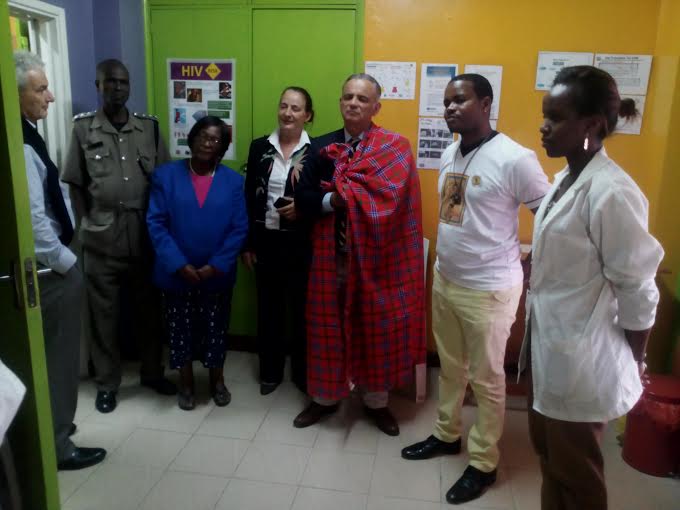

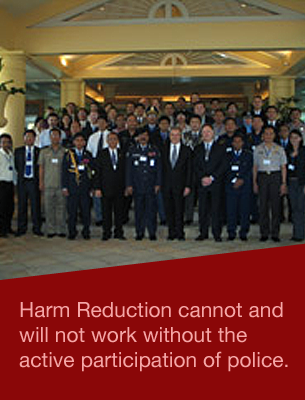
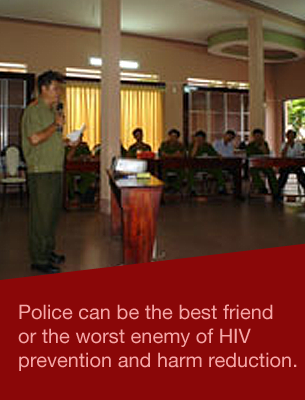
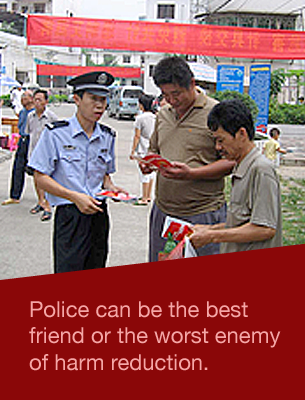
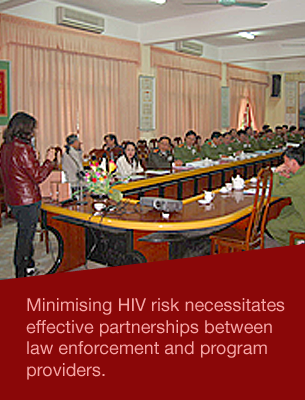
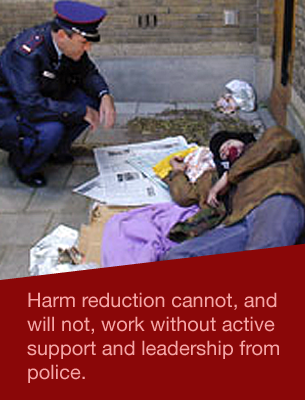


It is quite encouraging to see the police come out openly in the advocacy field. HIV and AIDS is a national Disaster in kenya and we shall be proud to have our police brothers join the world to fight against it’s spread. I applaud the kind of work Chief Inspector Wilson Edung lomali is doing to bring LEAHN to the picture of the police, Key populations, and the public in kenya. I now strongly encourage him to share his experiences with his peers within the police. I am very certain he will make it. This will change the police culture and attitudes towards key populations.
Thanks very much! Chief Inspector Wilson Edung Lomali has been working hard with the community as well as training police colleagues in harm reduction for several years now. There is much to be done to influence the police culture to be more supportive towards key populations and LEAHN and Wilson are committed to pursuing this. If you haven’t already, please join the Network and sign up for our eNews on the homepage to keep up to date with Wilson’s activities. Keep in touch!
It is worth to recognize the efforts of LEAHN and Edung in sensitizing Law enforcers on their role to reduce human right violations against the Key Populations in Kenya
Kudos Lomali I’ve worked with you and am convinced you can make it
Thanks for your message. Wilson and all our Country Focal Points work very hard to make a difference in their communities. Thanks for the encouragement. Melissa
Our LEAHN CFP Kenya Chief Inspector Wilson Edung Lomali is one person we as a community of MSM’s, can not avoid to feel his love, presence, care and commitment for the key populations. I really lack words to describe him. In our eyes as MSM’s community, we have always seen him as our brother not a policeman. His phone is ever on throughout and can not avoid to pick your distress call at whatever time of the day. He is with us anytime we want his help and response. His responses have always been immediate and timely. He is a flexible personality who approaches technical issues with tact. Just to dwell on his kind of culture;
Culture . . . one of those magical words that gets thrown about his circles, but only a few can define due to the nature encroached. it is the prevailing actions and attitudes demonstrated in his conduct over time that make us proud of him. Actions and attitudes, it really is that simple. To begin actively creating a culture, the officer first and foremost knows what your culture is supposed to teach. What are the actions you would like to be seen your team value the most? Once the actions are defined, then he tries his best to nurture the attitude with which you want your team to carry out. Recently in law enforcement agents training we had, there has been a lot of discussion regarding the attitudes or mentalities with which officers do their job. We realized that it was a requirement that individual must make that distinction, exemplify it on every shift, and expect the same. The key is that one must be intentional about it. If the he does not step up and steer the culture in a particular direction, then a culture will still form, but it may not be the desired one. To actively create culture, it must start somewhere . By defining the actions and attitudes of the groups over time in a briefing setting, where everyone hears the same words at the same time, one is able to efficiently share their cultural vision with the others. As law enforcement professional, he has to win in the briefing room before he can truly expect to win in the community.
Thanks so much for your thoughts on culture. As you say, culture exists and individuals play an active role in creating,reinforcing, transforming or resisting it. In policing, culture is often transmitted through the stories police tell each other which provide ways of thinking about how police should respond or act in certain situations. Wilson is an inspiring police officer and his experience and expertise passed on to other officers is an invaluable way to influence and shape police culture in the direction of reducing harm in policing and creating better relationships with all sections of the community. I look forward to more of your comments. Please stay in touch. Don’t forget to sign up to our eNews if you haven’t already. Melissa